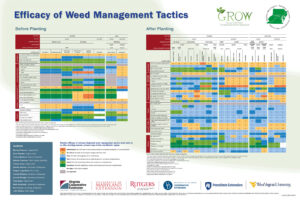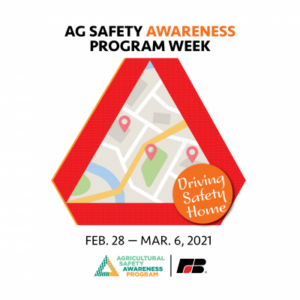Allium Leaf Miner
Allium leaf miner (ALM) feeding/egg laying scars continue to increase in chive plantings near Milford, Hunterdon County and Lawrenceville, Mercer County as of this Tuesday. Chives in home gardens in central Morris County and southern Cape May County were also found to be infested this past weekend, with adults actively flying in plants. The first (spring) flight of these flies appears well underway. Yellow sticky cards have captured low, but consistent (range 1-5/card/week) numbers of adults in Hunterdon and Mercer County plantings. Foliar insecticide applications temporarily suppress catches on the cards. Growers throughout the state should assume there is egg laying activity in their area currently.
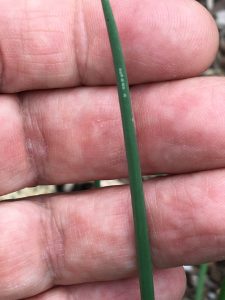 Growers should consider initiating (continuing) the control method of their choice at this time. Affected crops include chives, scallions, garlic, onions and leeks. Look for neat rows of white spots descending from the upper tips of allium leaves (see photo at left). Initial injury often occurs on the tallest leaves. Under warmer, less breezy conditions, adults may be seen near the tips of leaves (see photo of adults at lower right). Click on photos to enlarge the images.
Growers should consider initiating (continuing) the control method of their choice at this time. Affected crops include chives, scallions, garlic, onions and leeks. Look for neat rows of white spots descending from the upper tips of allium leaves (see photo at left). Initial injury often occurs on the tallest leaves. Under warmer, less breezy conditions, adults may be seen near the tips of leaves (see photo of adults at lower right). Click on photos to enlarge the images.
Floating row covers, kept on until this flight ends will help minimize access to plants. Insecticide applications targeting adults may be helpful as well, although weekly sprays have not stopped foliar injury. Spinosyn materials (Radiant, Entrust (OMRI approved)), pyrethroids (Mustang Maxx, Warrior), neonicotinoids (Scorpion, Venom), the diamide Exirel (section 2ee recommendation) and the insect growth regulator Trigard are labeled for leaf miner control.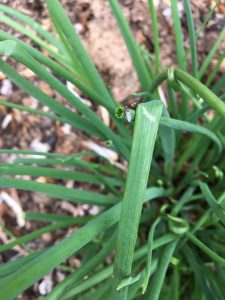
Adult activity and observations of feeding will be reported on in the IPM Update as they occur. At this time, all growers should continue to respond to the first adult generation. We will attempt to identify the end of the first flight so that growers know when the risk of infestation has abated.
 Articles in this section contain information helpful to the NJ commercial organic grower.
Articles in this section contain information helpful to the NJ commercial organic grower.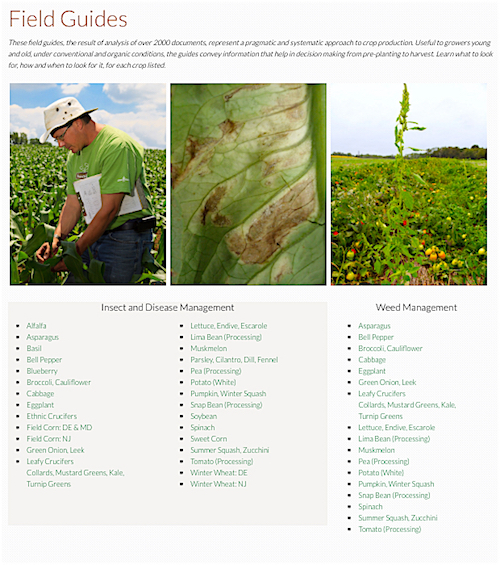
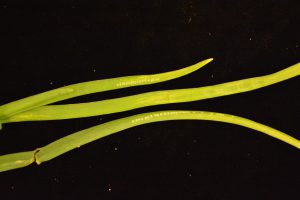
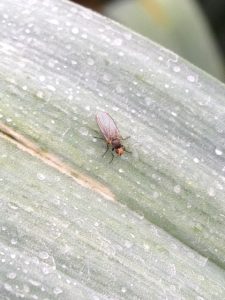
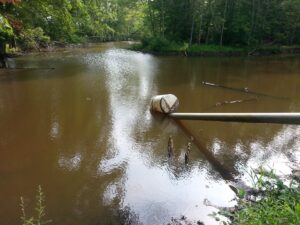
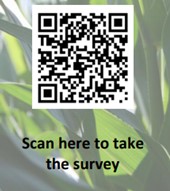 elow.
elow.